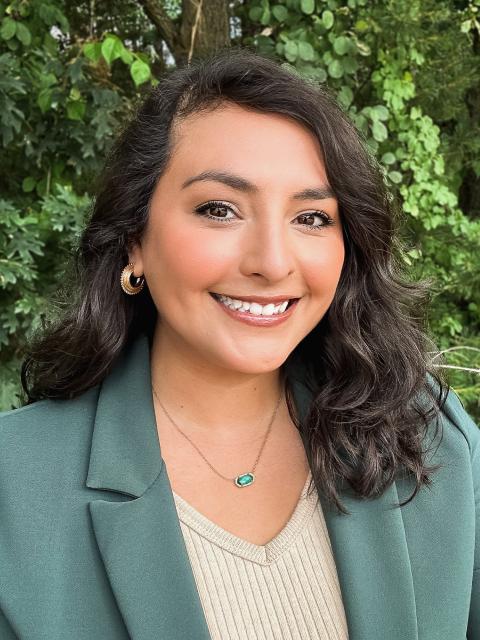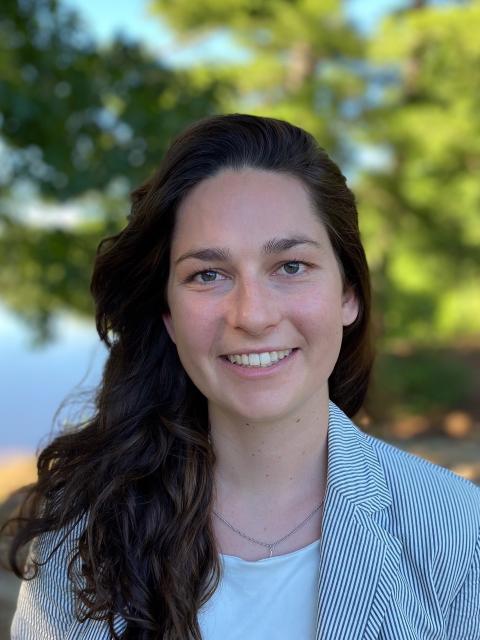Two Recent UNH Graduates Named 2025 Knauss Fellowship Finalists
New Hampshire Sea Grant is pleased to announce that University of New Hampshire (UNH) graduates Ana Silverio and Elizabeth Martin have been named finalists for the 2025 class of the National Sea Grant College Program’s prestigious John A. Knauss Marine Policy Fellowship.
The Knauss Fellowship honors John A. Knauss, a founder of the National Sea Grant College Program, who formerly served as a NOAA administrator and dean of the University of Rhode Island’s Graduate School of Oceanography. Since 1979, over 1,680 early-career professionals have participated in this year-long paid fellowship that matches highly qualified graduate students with host offices in the legislative and executive branches of the U.S. government in Washington, D.C. Fellows work on national policy issues affecting ocean, coastal, and Great Lakes resources.

Ana is originally from Austin, TX, and received her bachelor’s degree in biology from The University of Texas at Austin. In May 2024, Ana completed her master’s degree in marine biology from UNH’s Department of Biological Sciences. Her thesis research, advised by Dr. Easton White, Assistant Professor of Biological Sciences, focused on utilizing fishery-independent data from Texas Parks and Wildlife to examine how extreme events like hurricanes and freezes may affect coastal fisheries along the Texas Gulf Coast. She collaborated with Texas Park’s Coastal Fisheries Division to work towards recommendations for improving fisheries management in an era of more frequent and intense storms.
“I grew up in a fishing family, watching my dad filet his catches and listening to my abuela’s stories of growing up in a rural coastal town in México. I was inspired to pursue fisheries science after working with the local red drum fishery during my undergraduate studies, where I spent time speaking with local anglers at filet stations about their recent catches, many who reminded me of my own family members. The Knauss Fellowship is the perfect opportunity to learn more about how federal marine and environmental policies use current research for the sustainability of coastal communities across the U.S.” - Ana Silverio, 2025 Knauss Fellowship Finalist

Elizabeth received her bachelor’s degree in environmental science with a minor in marine biology from UNH, and is originally from Freeport, ME. During her time as an undergraduate, she also served as a summer Doyle Fellow working with Dr. Steve Jones to conduct oyster sampling and monitoring for Vibrio bacteria, and a re-submergence study to observe Vibrio growth when oysters are exposed to warm air temperatures. As a member of the Division 1 ski team at UNH, Elizabeth experienced a changing world both in the classroom and on the slopes. Elizabeth returned to UNH and received her master's degree in marine biology from UNH’s Department of Biological Sciences in September 2024. Her thesis, advised by Dr. Michael Chambers, Research Associate Professor at the UNH Center for Sustainable Seafood Systems, focused on sustainable aquaculture, specifically Integrated Mutli-Trophic Aquaculture (IMTA) where she grew shrimp, seaweed and oysters together in a recirculating land-based tank system. The goal of her research was to find a way to reduce the amount of nitrogen produced by traditional shrimp farming, which at a large scale can pollute waterways.
“I came back for my master's because I felt that IMTA systems were a promising solution to sustainably feed a growing population while restoring natural ecosystems with the additional ability to remove CO2 from the atmosphere. It was an exciting opportunity to study a solution to the climate crisis. I look forward to the opportunity the Knauss Fellowship will give me to continue to find solutions to climate change through the same medium, the ocean. However, this time it will be focused on policy issues and important decisions that impact marine resources at the government level.” - Elizabeth Martin, 2025 Knauss Fellowship Finalist
Ana and Elizabeth join a cohort of 88 finalists in the 46th Knauss class from 70 universities, representing all eligible Sea Grant programs for the first time in history. Knauss Fellowship finalists are chosen through a competitive process that includes several rounds of review at both the state Sea Grant program and national levels. Students finishing Master’s, Juris Doctor (J.D.), and Doctor of Philosophy (Ph.D.) degrees with a focus and/or interest in marine and coastal science, policy, or management apply to their state’s Sea Grant programs. If applicants are successful at the state level, their applications are then forwarded to a national panel of experts who select the finalists. This fall, the 2025 finalists will participate in a placement week to get to know each other and interview with potential host offices. Following placement, they will begin their fellowships in February 2025.
Read the official NOAA Sea Grant announcement: Sea Grant welcomes 2025 Knauss Marine Policy Fellowship finalists
For more information about graduate fellowship opportunities through NH Sea Grant, click here.
